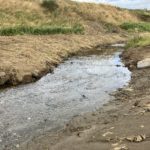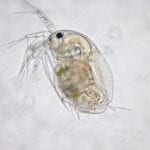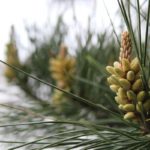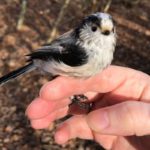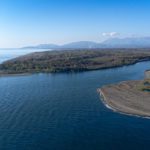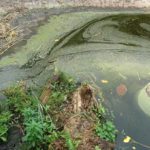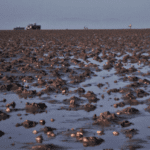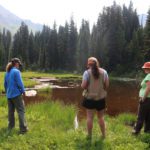Continued disruption of seasonal weather is causing spring activities in autumn
After a year which saw a ‘split spring’, heatwaves, droughts and a false autumn, the UK’s wildlife may be starting to confuse its seasonal...
Ecological Threat Report says 750 million globally are now affected by undernourishment
The latest edition of the annual Ecological Threat Report (ETR) - produced by the Institute for Economics and Peace (IEP)* - pinpoints trouble hotspots...
Projects aim to bring life back to Scotland’s rivers
The Scottish Environment Protection Agency (SEPA) says it is continuing its efforts to restore nature to Scotland’s rivers with the completion of two more...
Ancient bacteria might lurk beneath Mars’ surface
New study finds the chances of uncovering life on Mars are better than previously expected
When Mars’ first samples return to Earth, scientists should be...
Water fleas as ‘canaries in a coal mine’ offer key to managing chemical pollution
Water fleas, or Daphnia, could provide an important ‘early warning system’ for chemical pollution in our lakes and rivers and, where prevention to...
Conifer communication is complex and can be altered by air pollution
Conifers are dominant tree species in boreal forests, but they are susceptible to attack by bark beetles. A new study from the University of...
A road runs through it: Bird conservation in Essex
A plot of land next to one of the busiest roads in Essex has become a home for a variety of endangered wild birds,...
Interactive map charts sea incursion in Mediterranean coastal wetlands
An interactive map and database simulates the rise in sea levels faced by Mediterranean coastal wetlands over the coming century – and illustrates the...
New measures and research needed to tackle ecological impact of pharmaceuticals
A group of international researchers has issued a warning about the increase in pharmaceutical contamination in the environment, with suggestions about how it might...
First-of-a-kind database tracks agricultural phosphorus use worldwide
Researchers from the University of Maryland Centre for Environmental Science have released a seemingly first-of-a-kind study quantifying cropland phosphorus budgets around the world, which...
Smokers blind to devastating impact of butts on the environment, suggests survey
New research from environmental charity Hubbub seems to reveal just over 1 in 4 smokers (28%) are aware that cigarette butts are made from...
Report highlights “glaring gap in the UK’s Net Zero Strategy”
A new report sets out to explain - in direct terms - why the UK Government’s current Net Zero Strategy (NZS) falls significantly short...
Conservationists from six nations vow to save the Irish Sea
Conservationists from around the Irish Sea say they are looking to turn a tide of inaction to ensure the Irish Sea and all its...
Comment: The UK Government’s deregulation agenda is dangerous
For the good of future generations, we must retain existing laws and improve protections for nature, writes Joan Edwards, director of policy for The...
Cleaner water linked with smaller cockles that die younger
Better water quality in Wales’ most famous cockle area is linked with smaller cockles that have a higher mortality rate, a new survey of...
First UK study of synthetic chemicals found in food
The first comprehensive assessment of common synthetic chemicals found in UK foods has been completed by researchers at the University of Birmingham.
In the study,...
Super sewer progress
Recent aerial photography shows some of the changes being made to the banks of the Thames during the construction of London’s 25-km super-sewer, Tideway. Now said to be three-quarters complete – and on-schedule to finish in 2025 – the 2.5m-diameter tunnel will provide an extra 1.6 million m3 of storage in London’s sewers.
Sea rise reprieve?
A new study led by Durham University seems to show that the worst effects of global warming on the East Antarctic Ice Sheet (EAIS) could be avoided if temperatures do not rise by more than 2ºC above pre-industrial levels.
Study aims to better understand nitrogen pollution sources and solutions
Study traces the source of nitrogen pollution affecting the world’s second largest barrier reef
Agricultural operations are responsible for the vast majority of nitrogen...
Certain environment authority decisions are based on trust in citizen data
County administrative boards and the Swedish Forest Agency use species sightings reported by the public to make various environmental decisions. This is done largely...




